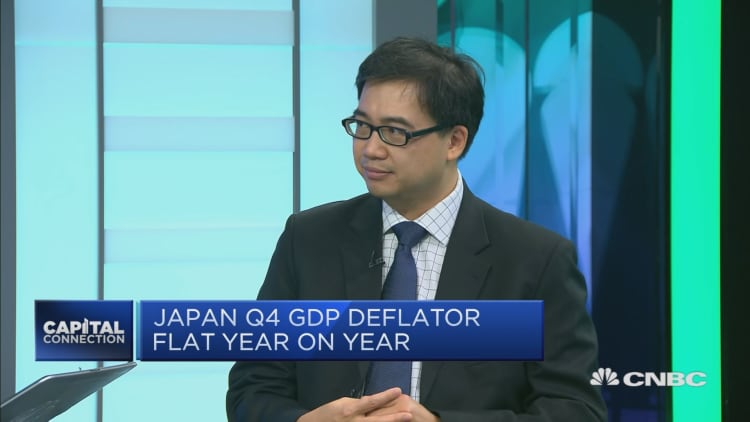The dollar fell across the board on Thursday, hitting a 15-month low against the yen, as negative sentiment around the U.S. currency outweighed a rise in 10-year Treasury yields to their highest levels in four years.
Analysts gave various explanations for the dollar's broad weakness, which came as the yield on the benchmark U.S. government bond climbed towards 3 percent, and as stock markets and commodities rose. But most agreed it was a long-term trend.
"Forex markets rotate from theme to theme all the time. The theme right now is global growth and strong global growth has historically pushed the dollar lower," said Greg Anderson, global head of FX strategy at BMO Capital Markets in New York.
The greenback had briefly jumped on Wednesday after data showed U.S. inflation was stronger than expected in January, bolstering expectations that the Federal Reserve could increase interest rates as many as four times this year. But it quickly turned lower, eventually posting its worst daily performance in three weeks against a basket of major rivals.
It added to those losses on Thursday, with the dollar index hitting a two-week low of 88.585. The dollar last traded down 0.56 percent at 88.62.
Further evidence of rising inflation came in a report on Thursday which showed U.S. producer prices accelerated in January, boosted by strong gains in the cost of gasoline and healthcare. There was no significant move in the dollar on the news.
Some analysts suggested mounting worries over twin deficits in the United States, amid a government spending splurge and large corporate tax cuts, as a reason for dollar weakness. The U.S. national debt has topped $20 trillion, while the 2019 fiscal deficit is projected at near $1 trillion, including deficit-financed tax cuts and two-year spending caps that Congress passed last week.

"I do hear worry from foreign investors that the U.S. is out of control fiscally. The world doesn't need a safe-haven (currency) at the moment because we have strong growth. But to the extent that we might need one in the future, the U.S. dollar is a less-safe safe haven," said Anderson.
"The story I hear most frequently from people is it's the re-emergence of the twin deficits," said RBC Capital Markets head of currency strategy Adam Cole, in London, of the dollar's persistent weakness. "There seem to be concerns on the U.S. fiscal position and what that implies for the current account."
Against the , the dollar skidded as much as 0.8 percent from Wednesday's close to 106.15 yen, its lowest since November 2016. It last exchanged hands down 0.66 percent at 106.29.
The euro briefly climbed back above $1.251 for the first time in two weeks, trading up almost half a percent from its last close, before easing back slightly.

